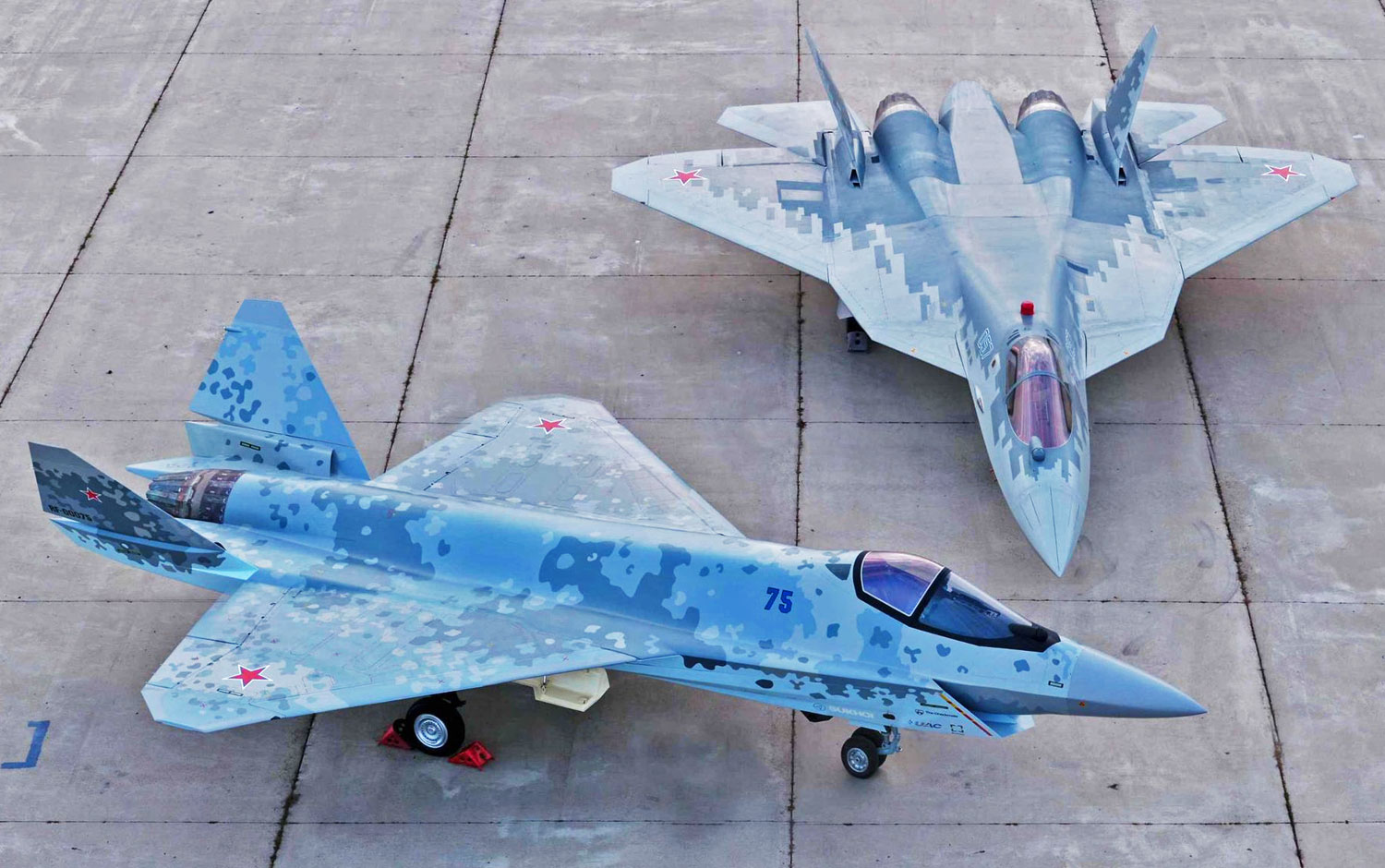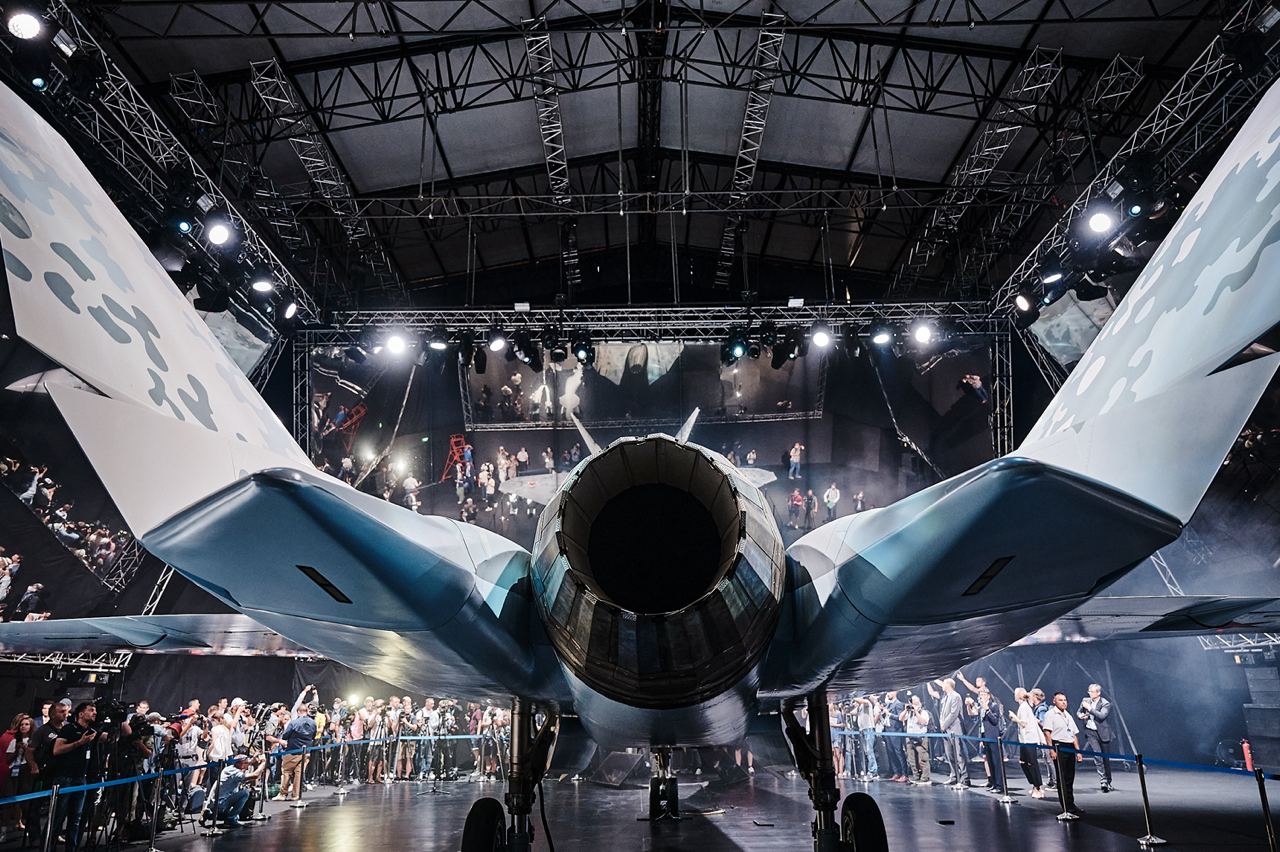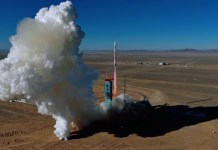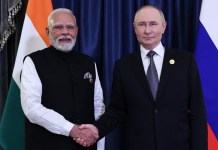Rostec, a Russian state-owned enterprise with operations in a wide range of industries, including military hardware, has expressed its intention to invite India to develop the Checkmate fifth-generation fighter jet, reported state-run TASS.
Spy Balloon Or Venus? When US Navy Tried Shooting Down A Hovering Balloon But It Turned Out To Be A Planet
During a Moscow air show in 2021, Russia unveiled the single-engine Sukhoi Su-75 Checkmate fighter jet model. Since then, Rostec has been pitching this product to several nations keen on working with Russia to build Checkmate.
The latest report, citing sources, said that the Russian delegation, which will be present at Aero India 2023, intends to explore the potential joint development of the Checkmate light tactical fighter jet with India.
“A delegation of representatives of our aircraft-building companies will attend the Aero India air show. We plan to discuss cooperation in fifth-generation aircraft. In particular, there is the intention to invite our Indian partners to join the Checkmate light tactical fighter project,” a source told TASS.
The reputedly largest airshow in Asia, India’s biennial “Aero India,” will take place in Bengaluru from February 13 to 17. At Aero India 2021, Russia displayed more than 200 military products as part of its participation.

That being said, Russian aerospace industry experts have been asserting that the Checkmate can be built, mass-produced, and made accessible to foreign nations before the end of this decade.
In 2021, Yuri Borisov, former Russian deputy prime minister, claimed that the checkmate program has “an anchor customer” but did not name this customer. Yet he said the aircraft would be promoted to African nations, Vietnam, and India.
In August 2022, Moscow announced its intention to build four prototypes of the advanced Su-75 Checkmate single-engine, fifth-generation fighter jet, with plans to begin flight tests as early as 2024.
In the Checkmate initiative, the company is utilizing cutting-edge supercomputer technologies. As a result, the firm can begin the flight tests as early as 2024 and considerably cut the prototype manufacturing time.
The fighter had its international debut at the Dubai Airshow in 2021, indicating that Moscow was making substantial attempts to enlist a foreign partner to develop this program.
The company has already explained that foreign customers can specify their requirements for the Su-75 Checkmate fighter, and work can be done to optimize the aircraft.
Challenges Ahead
The Checkmate, also known as Su-75, is primarily being developed to compete in the global market. According to the Russian defense company, the modular construction of the aircraft and a few add-on features enable it to use the most advanced fifth-generation technologies.
The aircraft has a 7,400kg armament load capacity, a top speed of 2,200 km/h (1,367 mph), and a 2,800 kilometers (1,740 miles) range. Although the range is a little less than previously stated, it is still impressive and will be accomplished using external fuel loads.
However, following Russia’s invasion of Ukraine, Western sanctions have also made it difficult for the Russian aerospace and defense sector to obtain critical technology required to produce large volumes of its sophisticated combat sensors with microprocessor subsystems.
According to Russian and Sukhoi marketers, Checkmate will be the most affordable fifth-generation fighter in the global arms market.
But considering that the developers are actively looking for a foreign partner to fund this program, investment-related issues will undoubtedly impede the future development of this fighter plane.

For instance, during the Dubai Airshow 2021, Rostec began talking to companies in the UAE about possibly co-producing the Su-75 Checkmate. Word got out that the company desperately needed international backers.
Additionally, the Russian defense industry also announced its plans to create an unmanned jet version, as previously reported by the EurAsian Times.
Experts noted that the idea that the Su-75 will be made accessible to overseas clients on time seems to be more marketing bluster given how far behind schedule the Su-57 production timeline has fallen.
Furthermore, the need for high-performance medium-weight fighter jets is dwindling, which poses another challenge for the entire Checkmate project. The extraordinary success of armed drones in numerous conflicts may threaten business in developing nations.
The nature of combat is evolving, and armed drones are much less expensive than manned aircraft. No matter Russia’s purported fifth-generation fighter aircraft’s capabilities, nations with limited military expenditures may decide against purchasing it.
Prospective Checkmate purchasers, including India, will be reticent to engage in the Russian project given the challenges the Russian aerospace industry faces in designing and delivering fifth-generation combat aircraft.
- Contact the author at ashishmichel(at)gmail.com
- Follow EurAsian Times on Google News




